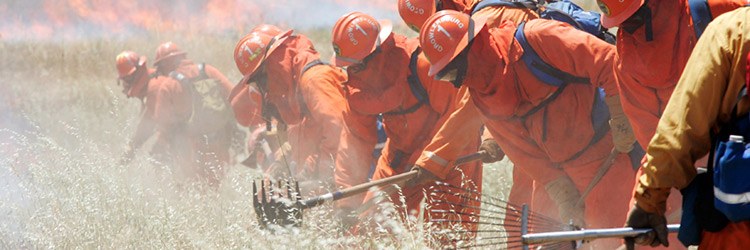In‑Prison Credit‑Earning Opportunities

The California Department of Corrections and Rehabilitation (CDCR) is committed to incentivizing incarcerated people to participate in rehabilitative programs and positive activities, and to commit to sustained good behavior.
In November 2016, California voters overwhelmingly passed Proposition 57, the Public Safety and Rehabilitation Act of 2016. Under Proposition 57, CDCR has incentivized incarcerated people to take responsibility for their own rehabilitation by providing credit-earning opportunities for sustained good behavior, as well as in-prison program and activities participation. Under Proposition 57, incarcerated people increased their Good Conduct Credit earning, and have been given time credits for participation in Milestone Completion Credits, Rehabilitative Achievement Credits, and Educational Merit Credits. Also under Proposition 57, a process for parole consideration was established for eligible people convicted of nonviolent crimes. Those who demonstrate that their release would not pose an unreasonable risk of violence to the community may be eligible for release upon serving the full term of their primary offense when an alternative sentence has been imposed.
Good Conduct Credit
- GCC is awarded to eligible individuals who comply with all the rules within a prison and perform their duties as assigned on a regular basis. Increasing the amount of GCC provides a compelling reason for individuals to positively program, as GCC may be forfeited due to disciplinary action.
- GCC is determined in part by which workgroup an incarcerated person is in. Workgroups have different custody supervision and privilege levels, and are determined by a classification committee on a case-by-case basis. Effective December 28, 2021, the following GCC rates are in place for eligible incarcerated people.
| Workgroup | Definition | GCC Rate – Nonviolent | GCC Rate – Violent |
| A1 | Full-time work, educational or training assignment; or full/partially disabled but otherwise eligible | 50% | 33.3% |
| A2 | Willing to program but on waiting list for an assignment or unassigned awaiting adverse transfer | 50% | 33.3% |
| B | Half-time assignments | 50% | 33.3% |
| C | Being disciplined for refusing to work or failing to program | 0% | 0% |
| D1 | Non-disciplinary segregation | 50% | 33.3% |
| D2 | In segregation units for serious disciplinary issues | 0% | 0% |
| M | Minimum custody or otherwise eligible for minimum custody | 66.6% | 33.3% |
| F | Full-time conservation camp workers and people training for those jobs | 66.6% | 50% |
Milestone Completion Credits
- MCC is awarded for successful completion of rehabilitative or educational programs designed to prepare participants to find employment upon release.
- MCC is awarded in increments of not less than one week, but no more than 12 weeks, in a 12-month period.
Rehabilitative Achievement Credits
- RAC is awarded to those who complete specified hours of approved self-help and volunteer public service activities.
- 10 days of credit may be awarded to someone who completes 52 hours of approved programming in a 12-month period.
Educational Merit Credits
- EMC is awarded for completion of high school diploma or equivalency programs, higher education degrees, or the Offender Mentor Certification Program (OMCP).
- 180 calendar days may be awarded for completion of a high school diploma or high school equivalency approved by the Department of Education, successful completion of associate, bachelor’s and post-graduate degrees, and the OMCP.
Extraordinary Conduct Credits
- An award of up to 12 months of credit may be awarded to those who have performed a heroic act in a life-threatening situation or who have provided exceptional assistance in maintaining the safety and security of a prison.
- Good Conduct Credit Frequently Asked Questions – January 2022
- Proposition 57 Frequently Asked Questions – April 2021
- Determinately-Sentenced Nonviolent Parole Process – July 2019
- Indeterminately-Sentenced (Third Striker) Nonviolent Parole Process Frequently Asked Questions – (July) 2018
- Inmate Locator Expansion FAQ – October 2018
- Implementation Plan for the McGhee Decision (Proposition 57 Parole Consideration for Nonviolent Offenders) – July 2019